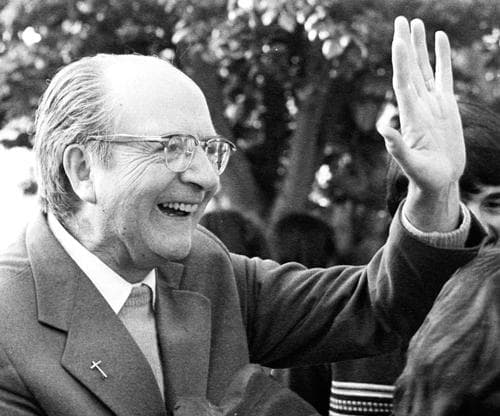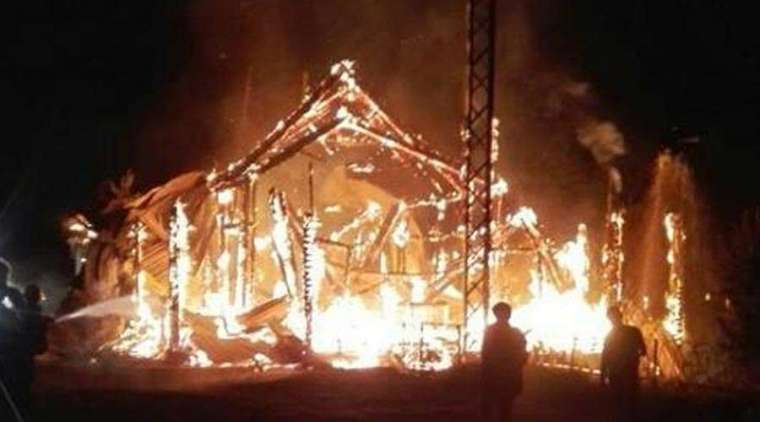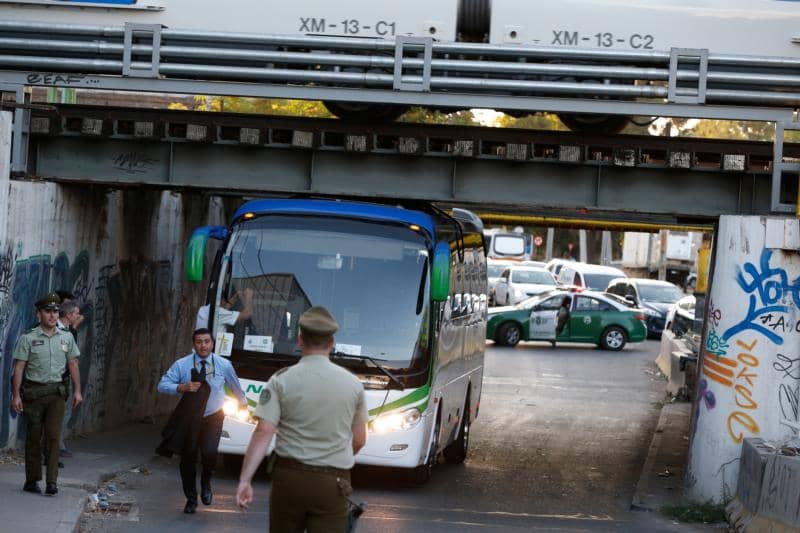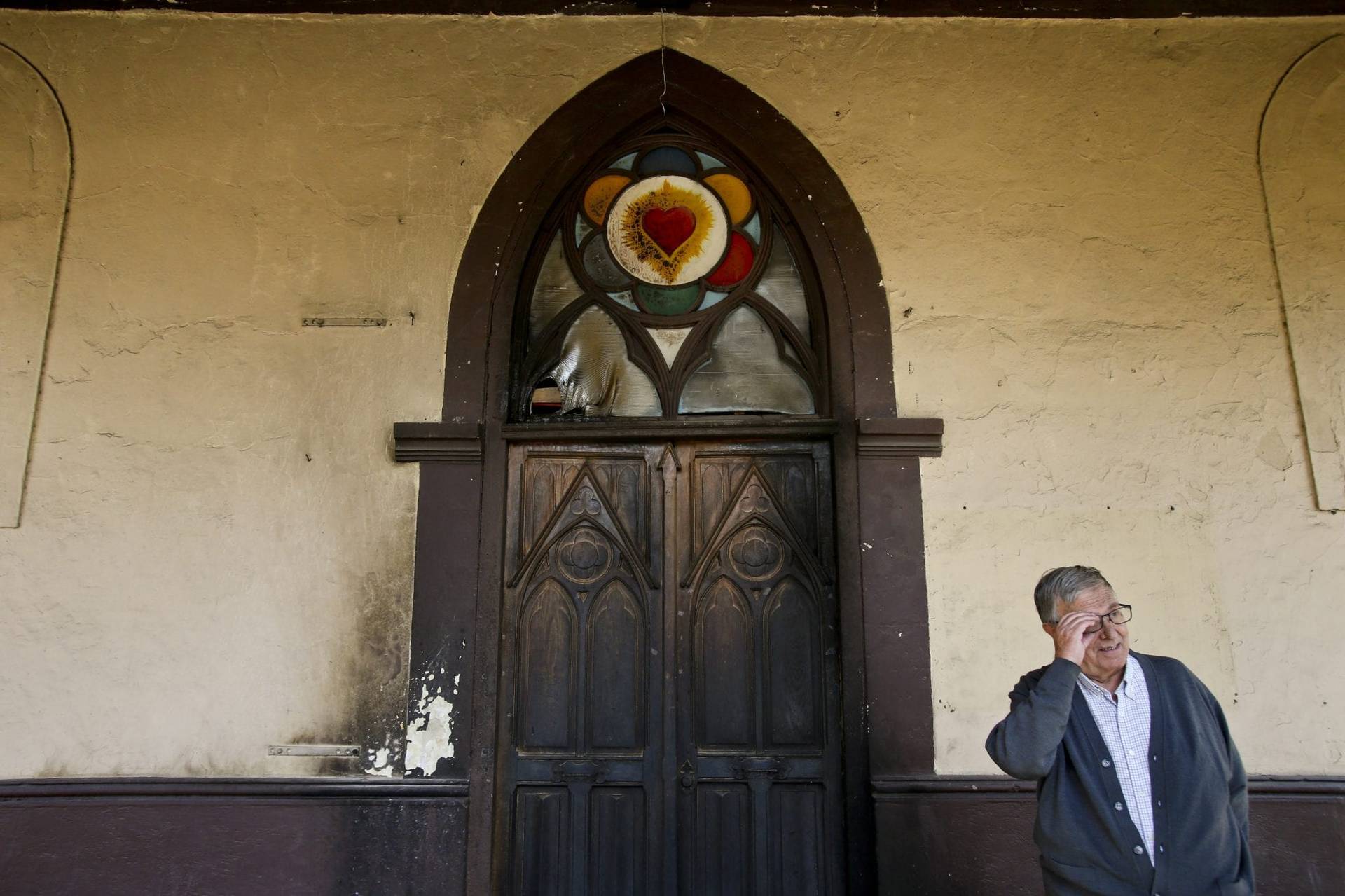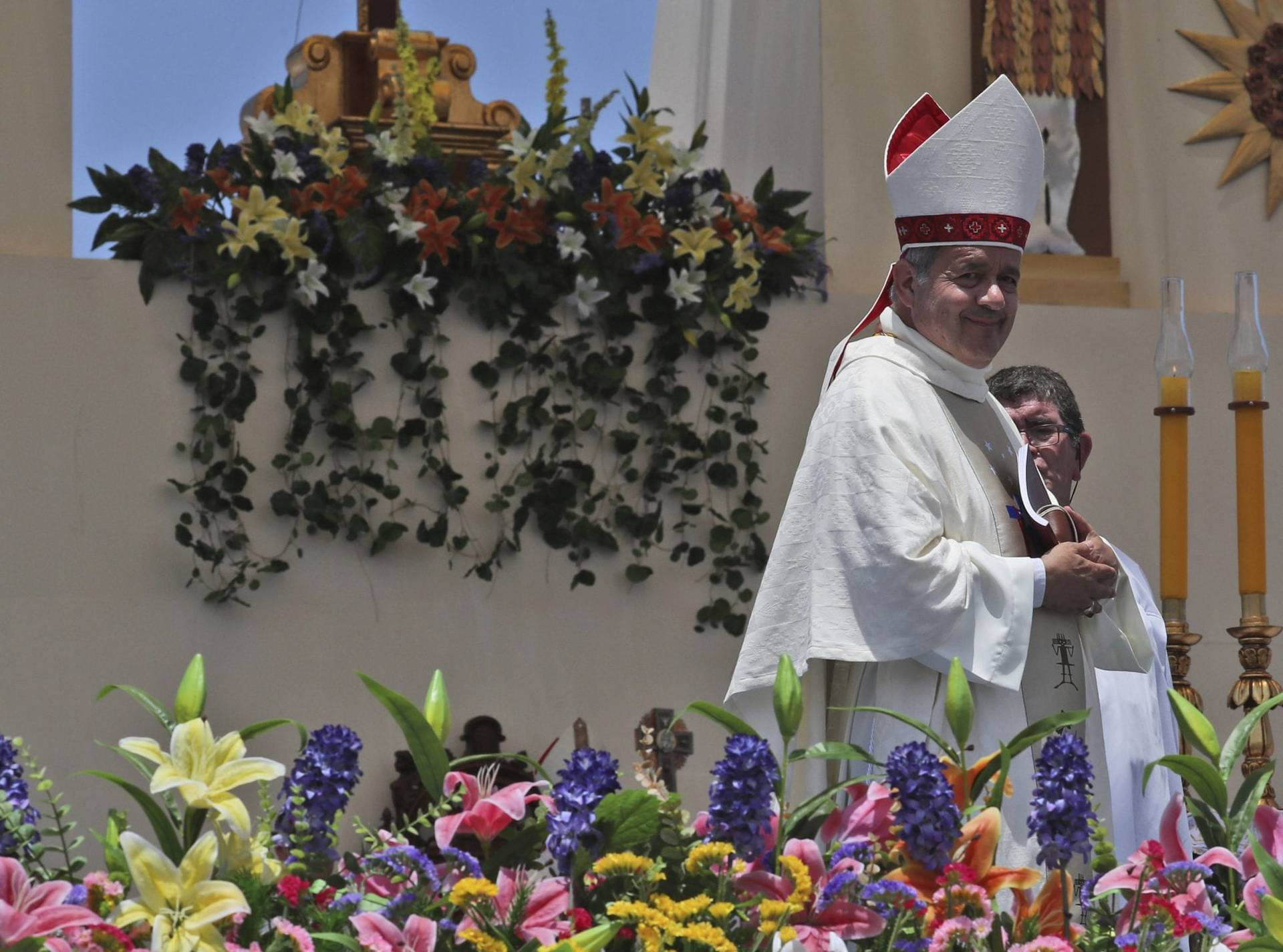ROME – Pope Francis hasn’t even arrived in Chile yet and he’s already shaking things up on his three-day visit, just ahead of a similar stop in Peru, by adding an unscheduled stop to visit the tomb of a local prelate celebrated as the “bishop of the poor.”
Shortly before the papal plane carrying Francis to Santiago, the Chilean capital, departed at around 8:30 a.m. on Monday, a Vatican spokesperson announced that while he’s making his way from the airport later today to the residence where he’ll be staying, Francis will take a detour to the parish of San Luis Beltrán in Santiago’s Pudahuel neighborhood in order to visit the tomb of Bishop Enrique Alvear Urrutia, who died in 1982.
Shortly after his election in March 2013, Francis declared his desire to lead a “poor Church for the poor,” and in the context of Chile, few figures symbolize that ambition better than Alvear, whose episcopal motto was, “Christ has sent me to evangelize the poor.”
On a trip where the extent to which Francis will acknowledge victims of Chile’s miltary dictatorship under Agosto Pinochet during the 1970s and 80s has been part of the subtext, the tribute to Alvear is significant, since the Chilean prelate was known for his opposition to human rights abuses in the years of military rule, braving detention and death threats to defend victims.
Born in 1916, Alvear was the eighth of eleven children in a deeply Catholic family. He studied at the Pontifical Catholic University of Chile, and was ordained to the priesthood in 1941, dedicating himself to the service of the poor. He became the bishop of San Felipe in 1964, and later, an auxiliary bishop of Santiago during the last decade of his life.
Among other things, Alvear took part in the Second Vatican Council (1962-65) and also became deeply involved in the Episcopal Conference of Latin America and the Caribbean (CELAM), both of which are personal passions of Francis as well.
When the Chilean military under Pinochet deposed President Salvador Allende on Sept. 11, 1973, and took control of the country, that night, against the advice of his own aides and advisers, Alvear presented himself at prisons to inquire on the status of people who had been rounded up in sweeping arrests carried out as part of the coup.
Later, Alvear became a fixture at the notorious Villa Grimaldi, the largest of the series of prisons and torture centers operated by Chile’s secret police under Pinochet. That made him a figure of suspicion in the eyes of the regime and its most ardent supporters, and at one stage, bombs were planted in Alvear’s office in what was widely seen at the time as an attempt to intimidate him into silence.
After Alvear’s death, the Agrupación de Familiares de Detenidos Desaparecidos in Chile, an organization bringing together the relatives of people who disappeared under Pinochet, paid tribute to him.
“We could never express to him in words how much we love him, how much we respect him. Just by saying his name, our heart beats with joy and are filled with a warm sweetness, that joy that gives us knowledge of his unwavering services at the service of the suffering person,” the tribute said. “For what you have given us, for what you have taught us, thank you for being so wonderfully earthly.”
A beatification cause for Alvear was opened in March 2012 under Cardinal Ricardo Ezzati of Santiago, with one of Francis’s fellow Jesuits, Chilean Father Jaime Correa Castelblanco, named as the episcopal delegate for the project.
Francis will be in Chile until late in the day on Thursday, when he moves on to Peru before departing for Rome on Sunday evening, arriving late Monday afternoon on Jan. 22.
